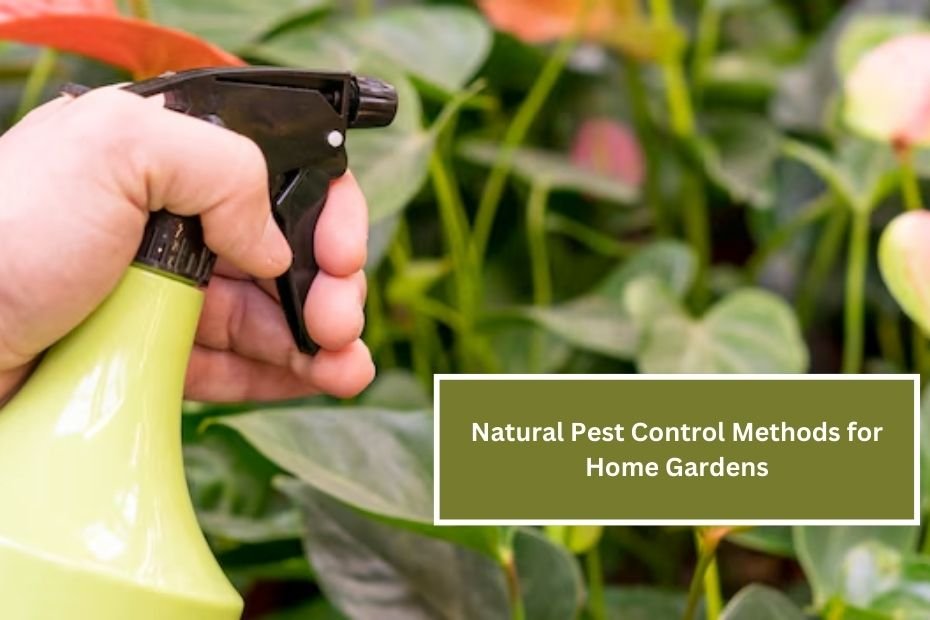Gardening is a rewarding hobby that brings joy and beauty to our homes. However, it often comes with the challenge of dealing with pests. Pests like insects, rodents, and fungi can damage plants, reduce yields, and spoil our hard work. While chemical pesticides are widely used to combat these pests, many gardeners prefer natural pest control methods. These methods are often safer for the environment, beneficial insects, pets, and humans. In this article, we will explore various natural pest control methods to help you maintain a healthy and thriving home garden.
Understanding Garden Pests
Before diving into pest control methods, it’s essential to understand the types of pests that commonly invade home gardens:
- Insects: These include aphids, caterpillars, beetles, and mites. They can feed on plants, leading to stunted growth or even death.
- Rodents: Mice, rats, and rabbits can munch on seeds, young plants, and even mature vegetables.
- Fungi: Fungal infections can cause issues like powdery mildew and root rot, affecting plant health.
- Weeds: While not pests in the traditional sense, weeds compete with garden plants for nutrients and water.
By identifying the pests in your garden, you can choose the most effective natural control methods.
Natural Pest Control Methods
1. Companion Planting
Companion planting is the practice of growing different plants together for mutual benefit. Some plants can repel pests or attract beneficial insects that control pest populations. Here are a few examples:
- Marigolds: These flowers can repel nematodes and aphids.
- Basil: Planting basil near tomatoes can help deter tomato hornworms and whiteflies.
- Nasturtiums: These can attract aphids away from your vegetables, serving as a trap plant.
By strategically pairing plants, you can create a natural barrier against pests.
2. Beneficial Insects
Encouraging beneficial insects is another effective way to control pests naturally. Ladybugs, lacewings, and predatory wasps are examples of beneficial insects that feed on harmful pests. To attract these helpful creatures, consider the following:
- Plant a diverse garden: A variety of flowers and herbs can attract beneficial insects.
- Provide shelter: Create habitats for beneficial insects using native plants, brush piles, or insect hotels.
By promoting a healthy ecosystem in your garden, you can keep pest populations in check.
3. Homemade Sprays
Many gardeners use homemade sprays to deter pests. Here are a few simple recipes:
- Soap Spray: Mix 1-2 tablespoons of liquid soap with a quart of water. This spray can help control soft-bodied insects like aphids and spider mites. Test on a small area first to ensure plants tolerate it.
- Garlic Spray: Blend a few cloves of garlic with water, strain the mixture, and spray it on plants. The strong odor can deter a variety of pests.
- Pepper Spray: Combine hot pepper flakes or powder with water and a few drops of soap. This spicy spray can repel many insects.
4. Diatomaceous Earth
Diatomaceous earth (DE) is a natural powder made from the remains of tiny marine organisms called diatoms. It is effective against crawling insects like ants, slugs, and beetles. Here’s how to use it:
- Application: Dust DE on the leaves and soil around plants. The tiny particles damage the exoskeletons of insects, causing them to dehydrate and die.
- Precautions: Be careful not to inhale the powder, as it can be harmful to lungs.
5. Physical Barriers
Physical barriers can prevent pests from reaching your plants. Some effective options include:
- Row Covers: Lightweight fabric can protect young plants from insect damage while allowing sunlight and rain to reach them.
- Netting: Use fine mesh netting to keep birds and larger insects away from fruits and vegetables.
- Cages: For vulnerable plants, using wire cages can provide additional protection.
6. Crop Rotation
Rotating your crops each season can help prevent the buildup of pests and diseases. Different plants have unique pest profiles, so changing their locations can disrupt the life cycles of pests. Here are some tips:
- Plan ahead: Keep records of where you plant each crop to avoid planting the same family in the same location year after year.
- Mix it up: Include legumes, which can improve soil health and help break pest cycles.
7. Traps
Traps can help catch and monitor pest populations. Here are some ideas:
- Beer Traps: Bury small containers filled with beer in your garden. Slugs and snails are attracted to the beer and drown in it.
- Sticky Traps: Place yellow sticky traps around your garden to capture flying pests like whiteflies and fungus gnats.
8. Natural Predators
Introducing natural predators can be an effective way to control pest populations. For example:
- Birds: Encouraging birds to visit your garden can help control insects. You can do this by providing birdhouses, bird feeders, and water sources.
- Frogs and Toads: These creatures feed on insects and can help keep pest populations low. A small pond or water feature can attract them.
9. Mulching
Mulching serves multiple purposes, including pest control. A layer of mulch can suppress weeds and create a barrier against pests. Organic mulches, like straw or wood chips, can also improve soil health as they decompose.
10. Healthy Soil Practices
Maintaining healthy soil is crucial for a thriving garden. Healthy plants are better able to resist pests and diseases. Here are some tips:
- Compost: Add organic compost to your soil to improve its structure and nutrient content.
- Soil Testing: Test your soil to understand its nutrient levels and pH. Adjust as necessary to promote healthy plant growth.
Conclusion
Natural pest control methods provide effective solutions for managing pests in your home garden without harming the environment. By using techniques such as companion planting, attracting beneficial insects, and employing homemade sprays, you can create a balanced ecosystem that supports healthy plants. Additionally, physical barriers, crop rotation, and traps offer practical ways to protect your garden. Remember, the key to successful gardening is observation and adaptation. Monitor your plants regularly, and be ready to try different methods to find what works best for your garden.

